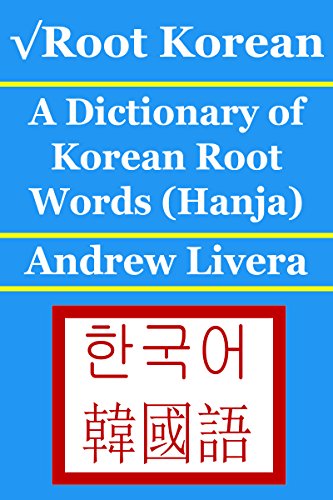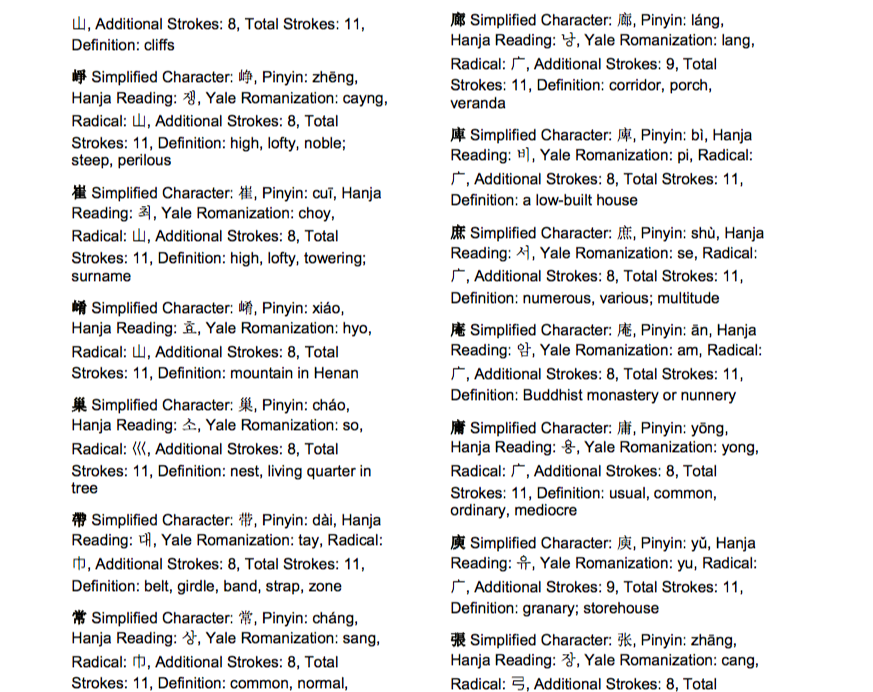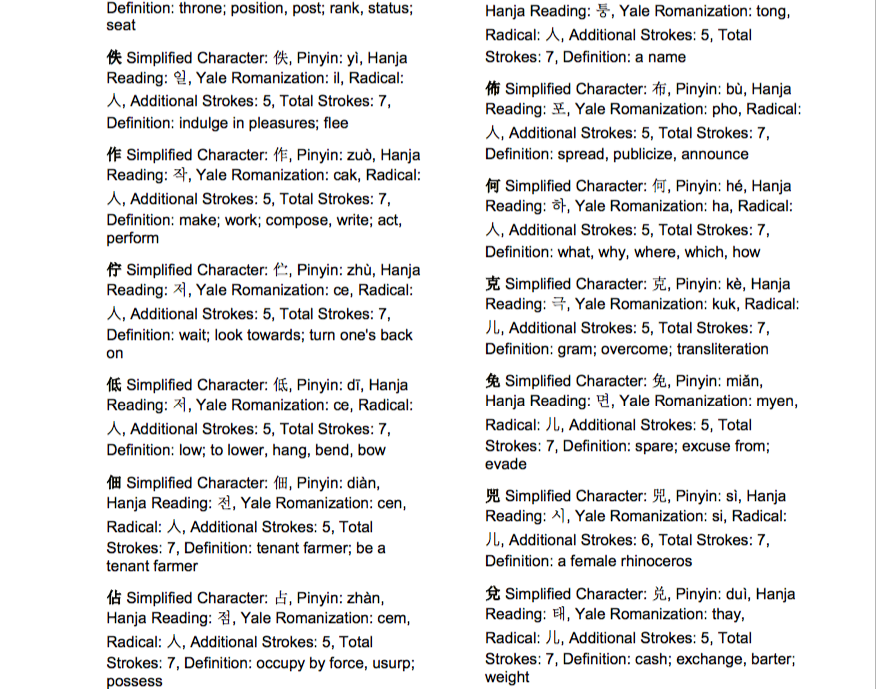
Basic info
Title: √Root Korean: A Dictionary of Korean Root Words (Hanja)
Author: Andrew Livera
Pages: 686
Price: $9.99 for the Kindle edition and $29.99 for the paperback
*Please note that I received a review copy of this book in exchange for an honest review.*
Intro
Many learners of Korean are not familiar with the Hanja relationship that many Korean words have. Just like many English words have their roots in Latin, many Korean words are based on Hanja characters.
Most don’t study these characters extensively (as it can be quite boring), but knowing many of them can help you remember vocabulary easier and quicker as you can quickly see the deeper meaning of a word and its relationship to other words.
For example, the Korean word 입구 (entrance) can be written in Hanja as 入口 where 入 means ‘to enter’ and 口 means ‘opening.’
Another benefit to learning Hanja is it will give you some knowledge to help you when traveling around countries like China and Japan. Many characters that you will learn are used there (with some slight differences).
Koreans learn Hanja during their school years (but many forget) and most Koreans know how to write their name in Hanja (it’s sometimes needed for certain documents). Hanja is also still used in many newspapers and restaurants when ordering.
The Book
So here’s where √Root Korean comes in. The author, Andrew Livera has compiled quite a bit of info in this book.
In this book, there are two sections. It is broken down into the Korean-Hanja dictionary, and the Hanja-Korean dictionary. If you know the Korean pronunciation but not the Hanja, you would use the Korean-Hanja dictionary. If you know the Hanja but not the Korean pronunciation, you would search in the Hanja-Korean dictionary.
All words contain the simplified Chinese character of a Hanja word, its pinyin reading, its Hanja, the Yale romanization, it’s stroke count, and finally, its definition. (See images below)


The information in this book is very thorough and extensive containing over 700 pages of information. It may be overwhelming to beginners just starting out (however I’d still find it very useful), but can be very helpful for those are deep into their Korean studies.
I myself found it very useful as I never really focused on learning any Hanja outside of the most basic ones I would see throughout my daily life here in Korea. I still haven’t had near enough time to get through even a quarter of the book, but I plan on using it to search for words as I continues to build my vocabulary.
I’ve even created a separate section in my study notebook for Hanja characters that I plan on studying/reviewing once a week or so.
You can purchase it as a Kindle ebook at https://www.amazon.com/dp/
